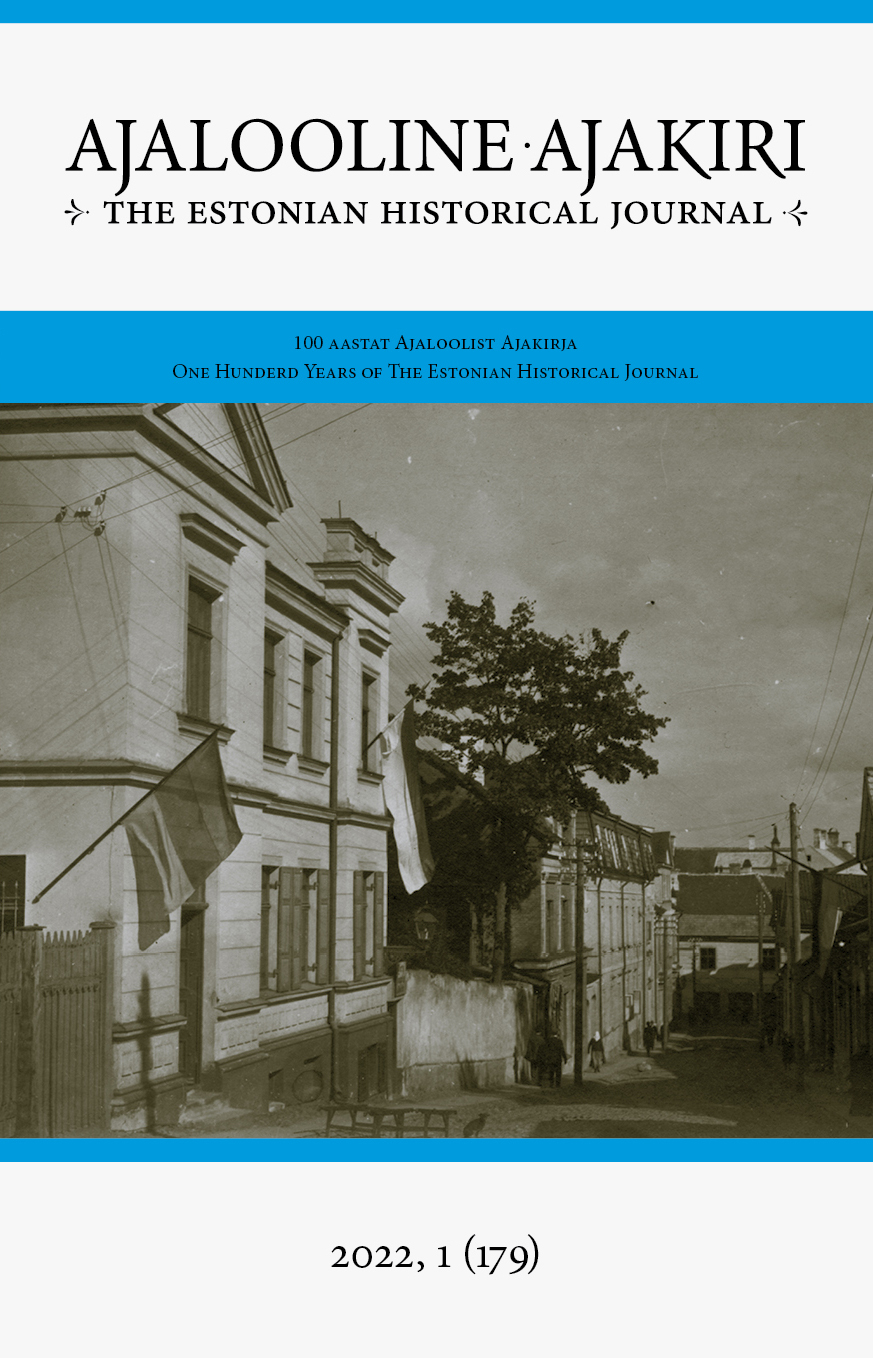The Academic Historical Society in 1920–8
DOI:
https://doi.org/10.12697/AA.2022.1.03Keywords:
University of Tartu, Arno Rafael Cederberg, Academic Historical Society, The Estonian Historical Journal, historiographyAbstract
The Estonian-language University of Tartu, which opened in the late autumn of 1919, was to become both the educational temple of Estonia and its main research centre. To confirm this principle, the University of Tartu Act adopted in 1925 explicitly prescribed that the task of the University, in addition to providing higher education, was also to promote scholarship in general, especially in regard to Estonian life, and to bring science closer to the people. In addition to the University’s various research institutions, academic societies operating at the university also played a vital role in promoting that ‘scholarship in general, especially in regard to Estonian life’.
In total, thirty-seven academic societies were founded at the University of Tartu between 1920 and 1939. Of these, the most important in terms of scholarly activity were the Academic Historical Society (1920), the Academic Mother Tongue Society (1920), the Academic Agricultural Society (1920), the Academic Society of Religious Studies (1921), the Academic Forestry Society (1921), the Academic Veterinary Society (1922), the Academic Medical Society (1922), the Academic Philosophical Society (1922), the Academic Chemistry Society (1923), the Academic Economics Society (1923), the Academic Law Society (1924), the Academic Literary Society (1924), the Academic Herbal Science Society (1924), the Academic Folklore Society (1925), and the Academic Mathematics Society (1926). In addition to the above, it is also necessary to mention the scientific organisations that had already previously been operating in connection with the University – especially the Learned Estonian Society (1838), the Estonian Naturalists’ Society (1853), and the Estonian Literary Society (1907).
This article focuses on the activities of the Academic Historical Society, which was founded at the initiative of Arno Rafael Cederberg, in the years 1920–28, and on its goals and achievements in the context of the development of Estonian historical science.
Cederberg was not convinced that the foundation of Estonian historical science could be based only on research conducted at the university. As such, he decided to found the first Estonian Academic Historical Society right after his arrival in Tartu in the early 1920s. While the primary goal of this society was to get students interested in history, particularly Estonian history, the society quickly developed into the centre of Estonian historical science.
He started hosting conferences where young Estonian historians and students, as well as experienced scholars, were able to present their research. In 1922, the Society began awarding a scholarship each year to 5–10 students so they could spend the summer holiday in particular regions gathering oral reports from the local population. This method was used to catalogue all of Estonia within a decade.
In 1922, the Academic Historical Society started publishing Estonia’s first reputable historical scholarly journal called The Estonian Historical Journal. The journal was published every quarter and consisted of schol-arly articles, significant archaeological finds, profiles of outstanding Finn-ish and Scandinavian historians, general discussions on theoretical ques-tions, and reviews of research papers and publications.
Cederberg also helped coordinate several important tasks for the fur-ther development of Estonian historical science. Starting in the mid-1920s, The Estonian Historical Bibliography and The Estonian Biographical Lexicon were released under the aegis of the Academic Historical Society, along with a series of editions and source publications. Cederberg also led the extensive work of writing The Estonian National History, starting at the end of the 1920s.
Just like the organisation of the archives of the Republic of Estonia and the development of the Estonian and Nordic history study program at the national university, the Academic Historical Society, founded at Ceder-berg’s initiative, and its various publications were of decisive importance in the coordination and development of Estonian history.

